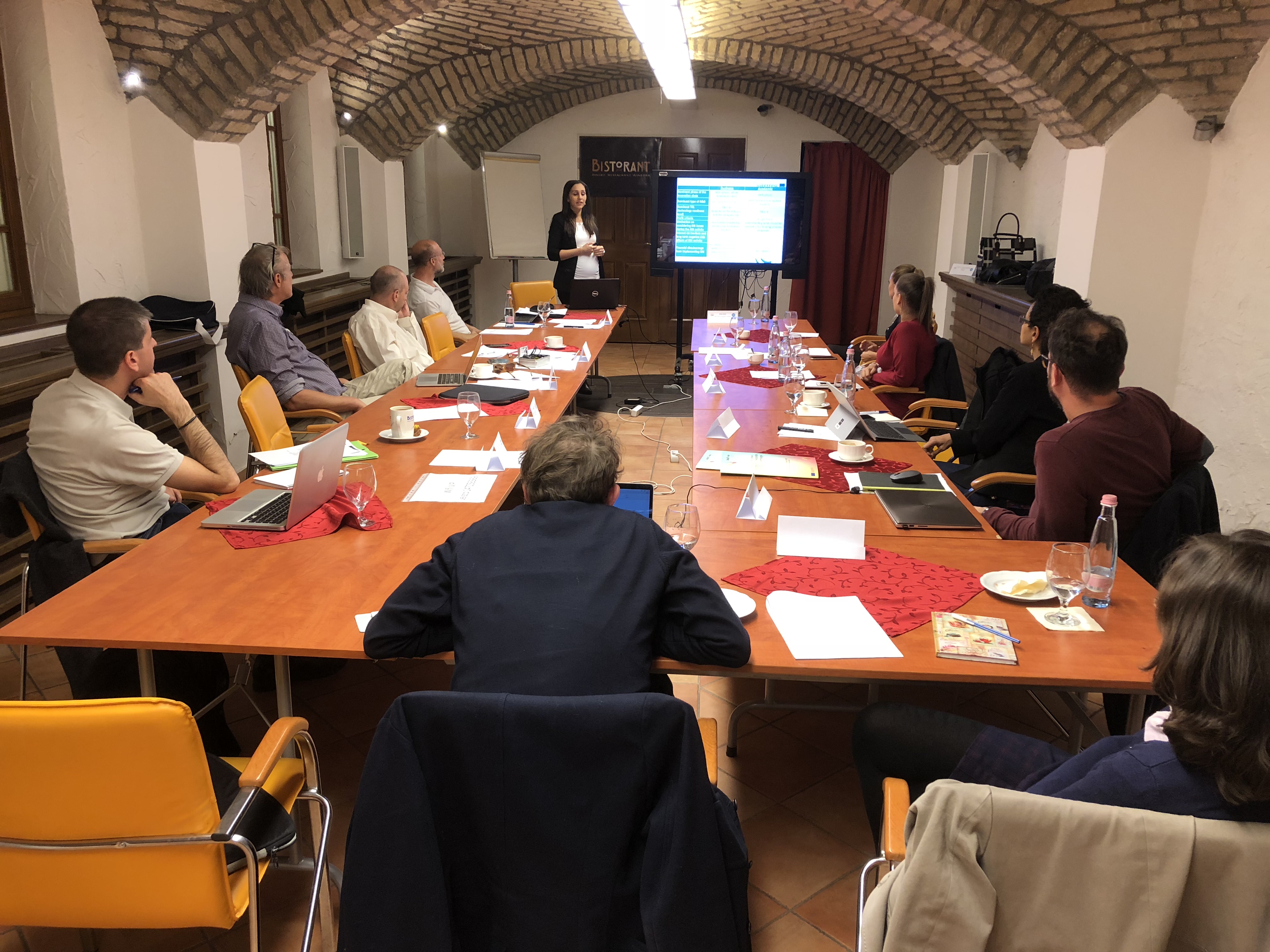D-STIR - VIRIdity in Hungary: Interesting discussions and Fun at the VIRI meeting in Szeged
24-10-2018
On 4-5 October 2018 took place the 4th annual VIRI meeting in Szeged (Hungary). The event was hosted by the First Hungarian Responsible Innovation Association. There were participants from all over the world: from Australia to the US. Altogether 14 experts discussed the current topics of responsible research and innovation and here was peresented the D-STIR project by Bíborka Dr. Janáky-Bohner.
And why is VIRI important for D-STIR Project? The Virtual Institute for Responsible Innovation (VIRI) was created by the Arizona State University (USA) to accelerate the formation of a community of scholars and practitioners who, despite divides in geography and political culture, will create a common concept of responsible innovation for research, training and outreach.The Institute is comprised of 27 academic institutions and non-profit organizations across the globe.
It was a great pleasure that early-carrier researchers introduced their research topics: Johnathan Hankins introduced the connections between beauty and RRI, Cian O’Donovan spoke about the digital connections, while Nikoletta Nádas detailed young researchers’ attitude towards RRI. There was an intense panel debate about self-examination of RRI as a field. The second day focused on the practical implementation of RRI: Armin Grunwald talked about technology assessment, Tsjalling Swierstra detailed the Dutch case, and Sujatha Raman explained the Australian story. Hannot Rodriguez introduced anticipation as a socio-epistemic practice; Christine Aicardi detailed the RRI in neuro-ICT, and Miklós Lukovics spoke about self-driving cars and digital readiness of the people in Hungary. At the end of the meeting, there were three project introductions: Péter Kakuk introduced the SMART-Map project (Horizon2020), Biborka Janáky-Bohner detailed the results of the D-STIR project (Danube Transnational Programme), and Beáta Udvari gave a short introduction to ROSIE project (Central Europe).

Bíborka Dr. Janáky-Bohner during D-STIR Presentation
The most exciting joint discussion of the meeting was, maybe, the challenge-solution game on self-driving cars. The participants firstly listened to the presentation of Béla Kézy (highlighted Hungarian urban development expert) as a basis for a debate, then individual and group discussion took place. The game also reflected to the fact that there are more challenges than solutions in relation with self-driving cars, so one should pay special attention to them.
Besides the thematic and professional work, the organizers enabled the participants to get to know the characteristics of the host country: traditional Hungarian food was served with traditional Hungarian live music. For a short time, a world-famous Hungarian gipsy band also played music for the guests. The VIRI-participants could take part in a team-building game in the evening: they could face the difficulties and challenges of the Hungarian language, and they could learn a Hungarian song which they could sing together with live music. During the evening, there was a magic show, too, and some VIRI-participants could learn and present some tricks to the others.
The 4th annual VIRI meeting can be characterized with the kind thanking words of one of the participants: „It was not only very interesting, but also very good fun!”
Altogether, the 4th Annual VIRI meeting was successful from all points of view. The next meeting is expected to be in Maastricht (the Netherlands).

Early-carrier researchers introduced their research topics
